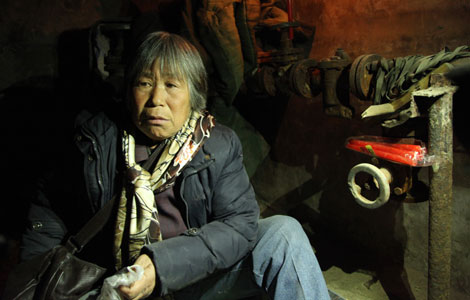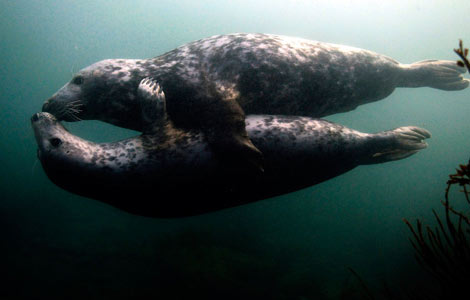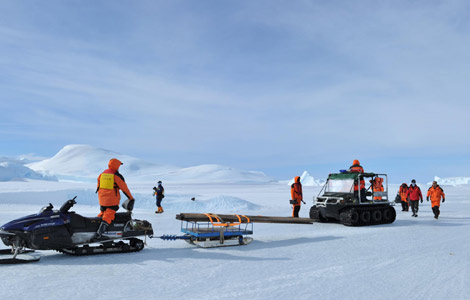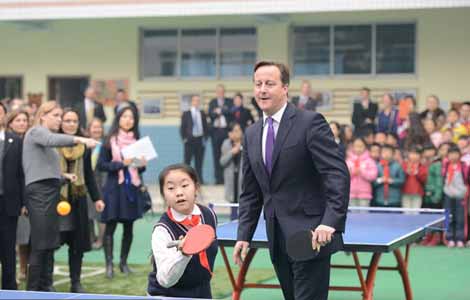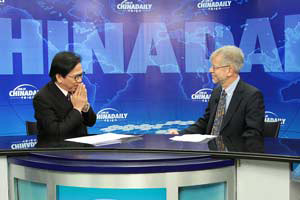Dialogue 'key to relations'
Updated: 2013-12-05 01:04
By Li Xiaokun and Wu Jiao in Beijing and Chen Weihua in Washington (China Daily)
|
||||||||
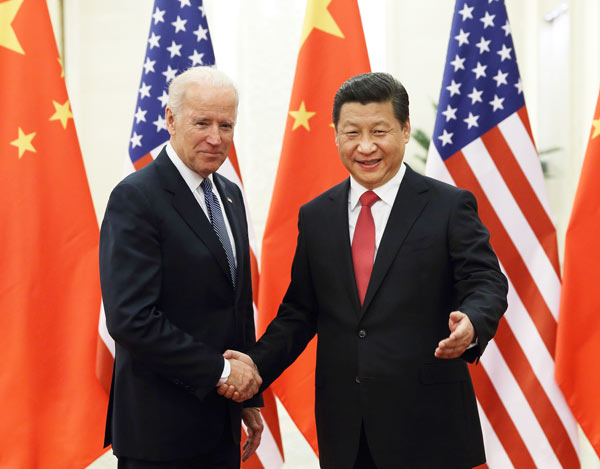 |
|
President Xi Jinping meets US Vice-President Joe Biden in the Great Hall of the People in Beijing on Wednesday. Lan Hongguang / Xinhua |
While Chinese President Xi Jinping and visiting US Vice-President Joseph Biden talked in private about the controversy arising from China's newly announced East China Sea Air Defense Identification Zone (ADIZ), both have refrained from mentioning it in their public remarks.
Instead, both have focused much on the big picture of their bilateral relationship.
Xi told Biden on Wednesday that strengthening dialogue and cooperation is the "correct choice" for China and the United States, urging the US to respect China's core interests.
Xi made the remarks amid rising tensions in East Asia, triggered by competing territorial claims by China and Japan.
"Both sides should keep the bilateral relationship going in the right direction, respect each other's core interests and major concerns, actively expand practical cooperation, and properly handle sensitive issues and differences," said Xi, reiterating China's stance on the ADIZ.
Chinese Foreign Ministry spokesman Hong Lei on Wednesday described the ADIZ asa necessary measure to protect national sovereignty and territorial and airspace security. So far, 55 airlines from 19 countries and three regions have started to report their flight plans to China. "More and more people come to realize that the East China Sea ADIZ is a zone of security and cooperation, rather than a zone of risks and confrontation," Hong said, accusing Japan of trying to play up the issue and create friction.
China has insisted that it was Japan's nationalizing the Diaoyu Islands in the East China Sea a year ago that changed the status quo.
Japan's reaction to China's new ADIZ was reported to be high on Biden's agenda, but his public remarks in Beijing have been described by US media as "subdued" when it came to the ADIZ.
Biden, quoted in a press release by China's Foreign Ministry, said Washington is willing to manage differences with Beijing in a constructive manner and avoid letting them affect bilateral ties. Biden described Xi as a candid and constructive person.
"In developing this new relationship, both qualities are sorely needed," Biden said during the meeting, clearly referring to the new type of major country relationship agreed upon by President Barack Obama and Xi during their informal summit in Sunnylands, California, in early June.
"Candor generates trust," he said, adding that the US-China relationship must be "based on trust and a positive notion of each other's motives".
Biden and Xi have built good personal relations. During Biden's trip to China two years ago, Xi, then vice-president, accompanied him on a trip outside Beijing. Biden also accompanied Xi on his US trip in February 2012.
Their talk on Wednesday lasted almost two hours, much longer than the scheduled 45 minutes.
China's ADIZ covers the Diaoyu Islands, over which Japan also claims sovereignty. Japan and many other countries, including the US, established ADIZs of their own decades ago.
Foreign Ministry spokesman Hong said on Wednesday that China has maintained communication with the US over the ADIZ issue. He said Beijing has briefed Washington on the legitimacy, openness and defensive nature of the air zone and expects understanding, respect and coordination from the US.
On Tuesday in Tokyo, Biden called on Japan and China to find ways to reduce tensions, saying Washington was "deeply concerned" by the announcement of the zone. He pledged to raise the issue directly when he met Xi.
However, Biden did not follow Japan by publicly calling for Beijing to retract the zone, or agree to issue a joint statement with Japan on the issue.
After Japan requested its airlines not to follow China's new air zone rules, the US government advised its airlines to notify Chinese authorities of flight plans to avoid misunderstandings.
On Wednesday, US State Department spokeswoman Marie Harf reiterated that the US does not recognize China's ADIZ and hopes China will not implement the ADIZ.
Defense Secretary Chuck Hagel at the Pentagon on Wednesday said it's not new or unique for China's ADIZ. "The biggest concern we have is how it was done so unilaterally and so immediately without any consultation or international consultation," he said, adding that it is not a wise course of action to take for any country.
But Hagel stressed that the US and China are working to develop a very strong military-to-military relationship, which was the center piece of the talks between Xi and Obama in June.
"We're working toward a stronger relationship to build a mechanism to address some of these tension issues, which probably is not going to get less complicated in the East and South China Sea," he said.
Jin Canrong, a professor of international studies at Renmin University of China, said that Japan cannot be fully satisfied by Biden's assurance of support on Tuesday.
Japan's online media leader, the Nikkei Online Edition, said on Wednesday that "the Japanese government wants to contain China through cooperation with the US. ... But the US government believes that excessive partiality on Japan will draw opposition from China."
Jia Xiudong, a senior researcher of international affairs at the China Institute of International Studies, said: "Washington should not hold double standards for China and Japan on this issue. It is supposed to play a constructive role in reducing the tensions rather than fueling them."
Biden told Xi that Washington is greatly impressed by the decisions made during the Third Plenum of the 18th Central Committee of the Communist Party of China held in early November. He said China's development is fully in the interests of the US.
"The possibilities are endless if the US and China can get their relationship right," Biden said.
Mo Jingxi contributed to this story.
Contact the writers at lixiaokun@chinadaily.com.cn,wujiao@chinadaily.com.cn and chenweihua@chinadailyusa.com
Most Viewed
Editor's Picks

|

|

|

|

|

|
Today's Top News
Cornering e-commerce fraud
Nelson Mandela has died: President Zuma
Broader economic prospects pursued
FDI in 2014 looks cloudy
Education reform to reduce reliance on gaokao
SF mayor lauds Optics Valley
Director sued over family planning breach
Banks not allowed to use Bitcoin
US Weekly

|

|

